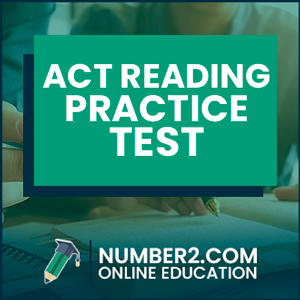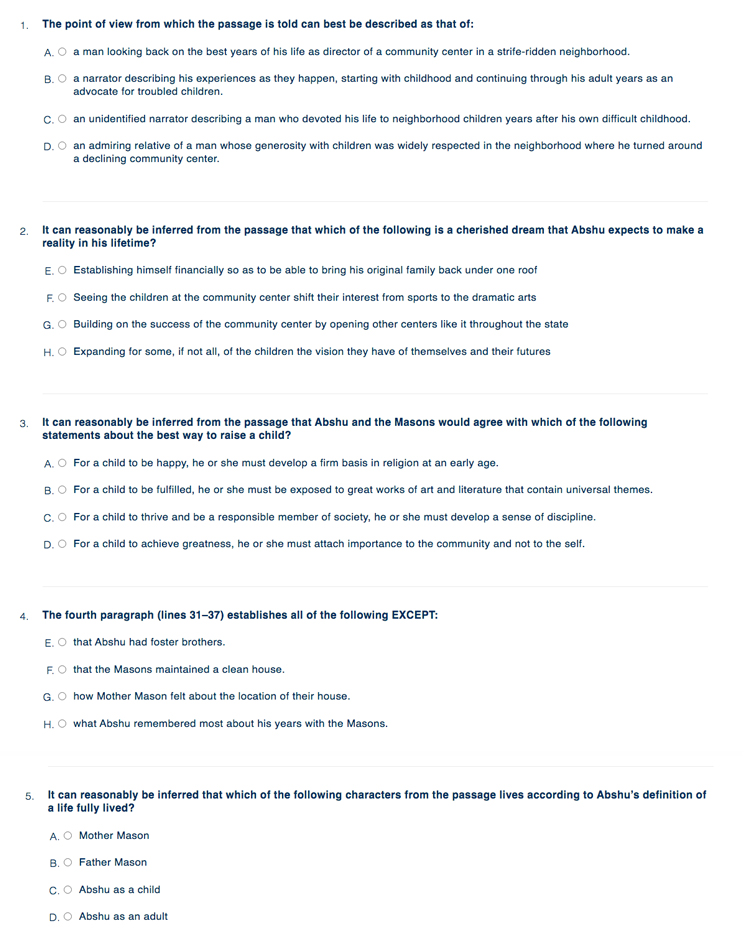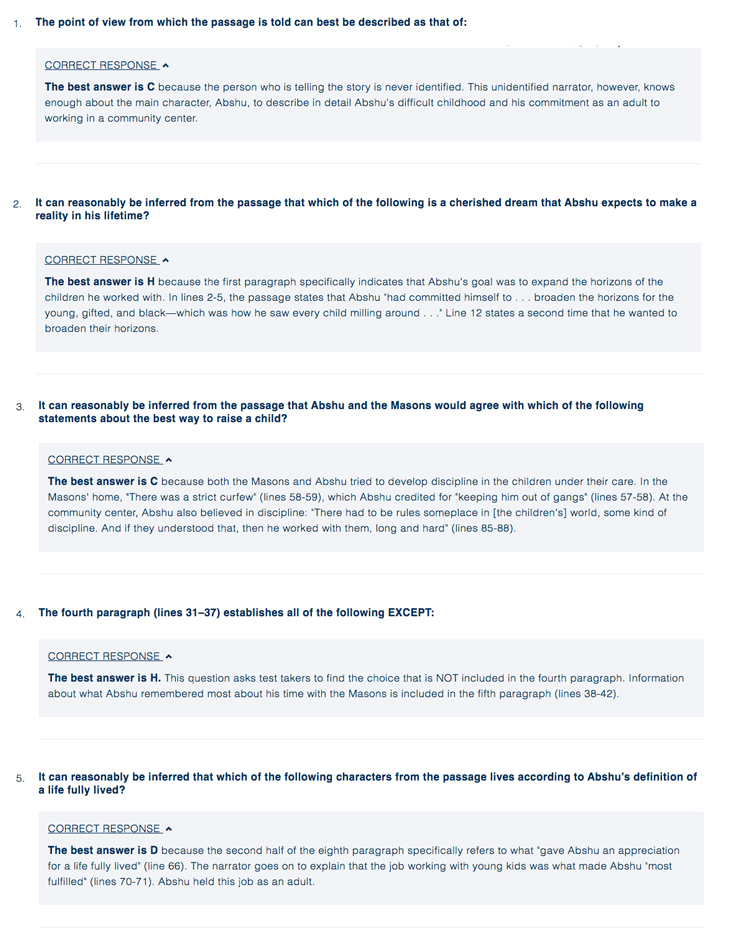 How to Use ACT Reading Practice Tests to Pass the ACT
How to Use ACT Reading Practice Tests to Pass the ACT
Preparing with Reading ACT practice tests will help you become comfortable with the reading, time management, and overall requirements of the ACT test. The ACT Reading section comprises 40 multiple choice questions that should be answered within 35 minutes. The purpose of the test is to assess your reading comprehension abilities. You will be required to read various sections and demonstrate your grasp of both direct and inferred assertions in the passages.
The test is divided into four portions, each with one longer passage or two shorter ones. Social studies, natural sciences, prose fiction, and the humanities will all be covered.
Doing well in the test requires considerable proactive, and the ACT practice test will help you achieve this, especially if you are not familiar with the timing and format of the test. To get the most out of your preparation, ensure you are using the best practice material.
It is vital to remember that practicing with shoddy material will result in a poor result. Equally, test takers should be aware that the ACT Reading test is a standard test, and most questions in the practice test will follow the same format during the actual test. Notably, when taking the practice test, always remember to read the real passages included in the test.
Let’s look at a few ACT practice tests of Reading, so you can understand what’s on the test and how to improve your test taking skills for exam day.
ACT Reading Practice Test
Here is one of the ACT Reading Practice Test that the ACT published this year to give students a change to improve their reading and comprehension skills.

ACT Practice Test Reading Passage

ACT Reading Practice Questions

ACT Reading Practice Answers

This practice test along with its questions, answers, and explanations is provided by the ACT and is it’s copyright.
Should You Take ACT Reading Practice Tests?
The ACT Reading Practice test is very important for your preparation before you sit for the actual test.
Taking the practice test can help you in several ways, like orienting towards the actual test. This will help you identify and rectify mistakes, and reviewing your performance will help you reflect on the areas that need improvement.
If you are unfamiliar if the ACT format and the question types you expect, taking a practice test before the actual test can help you understand what to expect and the proportion of questions from a particular section on the test day.
How many ACT Reading Practice Questions Should I Take?
In short, you should do as many ACT reading practice question as you can. As indicated, the best way to prepare for the ACT Reading test is to take a practice test. It is essential that you take the test under the ideal conditions replicating the exam setting and timing yourself.
The number of practice tests you should take can be challenging, but depending on the available time you have before the test day, it is recommended to take a minimum of three practice tests and, at most, five tests.
Always view how you performed after each test to identify weak areas and use your time to hone skills in those sections before taking the next practice test.
ACT Reading Section Question Types, Format, & Topics Covered
The major goal of this portion is to assess a candidate’s ability to read, analyze, and comprehend a passage. There may be questions in this section about certain writing styles and approaches utilized in each passage. As a result, you should be familiar with the narrative and literary principles you learned in language art classes.
Question types in the ACT Reading section are divided into six categories. The big picture questions require the test taker to read the test, get the writer’s perspective and subject matter, and then answer the question. Detail-oriented questions are straightforward, and you will be required to find your answer from the passage.
Interestingly, function and development questions require one to discuss how the passage has been structured or developed or why a particular structure has been chosen. Also, inference questions test your ability to infer using provided information in a sentence or passage. Answers to these kinds of questions cannot be found directly in the passage.
Vocabulary questions ask test-takers to five means of a particular word as used in the text. Lastly, you will find the find the mistake type of questions that require you to identify grammatical mistakes and pick the best sentence structure. Basically, they test English technicality in these questions.
ACT Reading Practice Tips
Here are the most useful ACT tips for the Reading section that will help improve your test taking skills and ACT score.
Multiple-choice Strategies
The answers are in multiple choices, and the best way to answer questions is by eliminating incorrect answers first. Sometimes, a single word in the answer can make it wrong, so always find flaws in answers and cross the wrong ones. Then, instead of looking to find the correct answer, look for a reason to eliminate the other three to remain with the correct choice.
Answer every question
In the ACT, there is no wrong answer penalty, so you should attempt all questions. Even if there are questions, you are unsure of their answers, you can guess the answer. You should identify your guessing letter before the test but still look for the closest option after eliminating the wrong choices.
Understand the comprehension question types
- Detail questions– these are questions that will ask information about a specific part of the passage.
- Function questions- These questions ask the purpose of a particular part of the text.
- Global questions- they ask about the whole passage
- Inference & Writer’s View questions- These questions test your ability to make inferences, and they ask you if you understand something that is not stated in the text
- Vocab-in-Context questions– these are questions that will ask you about the meaning of the particular word as used in the text.
Understand the comprehension question trap answer types
- Distortion- these are answers that twist the passage details to confuse you in getting the correct answer.
- Extreme- they are too extreme to show the author’s purpose, and they include words such as never, always, worst or best, among others.
- Misused detail- this will be a true statement from the text but not one answering the question.
- Opposite- these answers will contact the details provided in the text
- Out-of-scope- they include information, not in the passage.
Use the line references for context
Line references are important to help you find information from the text. You should read around the reference line to find your answer. Pick the answer you believe to be correct, then re-read the context to find support for that answer choice. For instance, if the question references line 10, you should read lines 8 through to 12 to find the answer.

